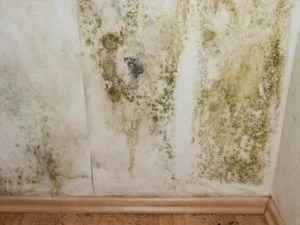Tips About Water Leak Detection You Can Use
You may have heard horror stories about water leaks and water damage. While it is fairly likely that you might experience a water leak as a homeowner (especially if your home is older), it doesn't necessarily have to be a disaster.
You can reduce risk and mitigate damage by being vigilant and proactive with maintenance. It also helps to know what you are looking for when trying to detect a leak. Here are some helpful hints.
Find that Leak
Have you ever heard of a foundation or slab leak? It's when the piping in or underneath your home's foundation or concrete slab that it sits on is leaking.
It is caused by a shift in the earth, for example an earthquake. If you've recently done construction, that can sometimes disturb that piping and cause a leak.
To be certain, you should rely on your plumber's special diagnostic equipment.
There are other ways to know though, and these are a few you can look for at home on your own:
- Hearing water rushing even when things are turned off.
- Seeing water pooling on or near your foundation.
- Finding damp or cold spots on your walls, ceiling, or floor.
- Experiencing a hike in your water bills.
You could be facing a slab or foundation leak.
Check your faucets and showerheads all well, which can often cause sneaky leaks.
Do they drip when turned off? It might be time to replace.
Leak Prevention
Some of the nastiest leaks come from damaged pipes caused by clogs. Don't put anything down there that doesn't belong (i.e. no food matter). Get your drains cleaned and pipes inspected regularly.
Clean out faucet aerators from mineral residue and drain your hot water tank every few months to remove sediment that gathers, which can create problems.
Put storage up on shelves and not directly on the floor in your basement or crawl space.
Don't Underestimate What a Leak Might Do
 Don't look the other way when you see a water leak, hoping that it will resolve itself. Water can do loads of damage in a short period.
Don't look the other way when you see a water leak, hoping that it will resolve itself. Water can do loads of damage in a short period.
Beyond the obvious damage to your belongings, water will destroy a lot of your home's decor, like paint, plaster, light fixtures, flooring and more.
If it gets into the walls, it can cause drywall to warp.
If it contacts the structure, it can compromise your home’s structure, which can even make it unsafe.
Water leaks can also cause mold to grow, which can pose a serious health risk to your family.
Mold is one of the more serious byproducts of a water leak, and it should not be taken lightly.

